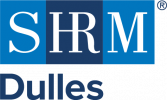Event Details
The Balanced Scorecard
| Date: | April 4, 2019, 7:30am |
| Organizer: | Laurie Smith and Megan Hollywood |
| Location: | Fairfax County Government Center Conference Room 8 12000 Government Center Parkway Fairfax, Virginia 22035 |
| Price: | Free |
| Event Type: | Discussion Group Meeting |
| iCal link | Add to Calendar |
The Balanced Scorecard was developed in the 1990s at the Harvard Business School by Robert Kaplan and David Norton. Kaplan and Norton identified that many companies managed their businesses based solely on financial measures. Though financial measures are necessary, they can only report what has happened in the past — where a business has been, but not where it is headed. Being overly focused on short-term financial results leads to neglecting activities needed to position them for continued success. Kaplan and Norton developed the Balanced Scorecard to help Boards ensure that adequate effort was also spent focused on activities that set organizations up to achieve their strategic objectives.
In this discussion group, we will discuss how HR leaders can create a balanced scorecard for their areas of responsibility and to be able to articulate to leadership how their activities and results contribute to attainment of organizational objectives.
Customer - How HR’s services meet the needs and expectations of employees, managers, candidates, and other stakeholders. This may include engagement survey results, turnover, exit survey results, achievement of Best-Place-to-Work goals, and other indicators.
Financial - How HR’s costs compare to their budget, industry standards, and their own past performance. Examples include cost-to-fill open positions, recruiting cost per hire, benefit cost per employee, HR salary expense per employee, etc. The organization may also ask HR to help track organization-wide indicators such as revenue per employee.
Internal Business Process - How HR increases efficiency by streamlining and automating processes as well as managing functions in their area of responsibility. Metrics may include percent of HR processes that are automated, percent of performance reviews completed on time, average days-to-fill vacancies, payroll errors per pay period, etc.
Knowledge Growth - How well HR supports building overall talent and competence in the organization. Metrics may include percentage of open positions filled by internal candidates, contractor cost as a percent of salary expense, units of work per labor hour, or other key indicators such as percent of employees who attain various certifications. One department would not track all of these indicators. Instead they would select indicators that impact the strategic objectives - normally two to four for each of the four perspectives.
About the discussion facilitator:
Kelly Carberry consults in the areas of human resources, leading change, and organizational effectiveness and development.
Ms. Carberry has both Fortune 500 and private non-profit management and human resource experience in the hospitality, technology, and healthcare industries. She has professional memberships in the Human Capital Institute and the Society for Human Resource Management. She served for five years on the Research Advisory Group for Human Resources at the Wharton School of Business, and was an appointee on the Loudoun County Equal Employment Opportunity Planning Committee.
Ms. Carberry holds a Master’s Degree in Leadership from the McDonough School of Business at Georgetown University, and the following certificates: Human Resource Strategy from the Wharton School of Business, Diversity Management from National Training Laboratories, Human Resource Law from the Institute of Applied Management Law, and Strategic Workforce Planning from the Human Capital Institute. She is a Certified Senior Professional of Human Resources with the HR Certification Institute, and holds a Senior Certified Professional designation from the Society for Human Resource Management.
Ms. Carberry has a passion for helping organizations achieve their objectives through strategic human capital management. Her generalist skills include workforce planning, performance management, workplace culture, talent acquisition and development, compensation, compliance, rewards and recognition, employee relations, and benefits.
Please join us for this lively discussion. You are welcome to extend an invitation to interested colleagues. No fee is charged for attending. However, registration is required on-line, at least 24 hours in advance, via the Dulles SHRM web site (www.dullesshrm.org) -- Chapter Discussion Groups. If you have questions, contact Laurie Smith at 703-362-8082 or Megan Hollywood at 571-488-4525. Participation may be limited to the first 25 people who sign up.





